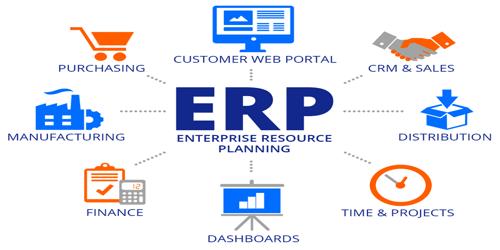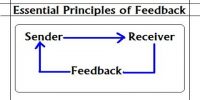Enterprise Resource Planning (ERP) is a process by which a company (often a manufacturer) manages and integrates the important parts of its business. An ERP management information system integrates areas such as planning, purchasing, inventory, sales, marketing, finance, human resources, etc.
Benefits of Enterprise Resource Planning (ERP): ERP system can generate significant business benefits for a company by the following ways –
- Quality and efficiency: ERP creates a framework for improving a company’s business process. That result in significant improvement in the quality and efficiency of customer services, production, and distribution.
- Decrease cost: ERP creates a framework for improving a company’s internal business process that also results in reducing wastages and in turns and consequently decreasing the cost.
- Decision support: ERP provides vital cross-functional information business performance quickly to managers that improve their ability to make a better decision in a timely manner.
- Enterprise agility: ERP removes many barriers of the business process of information systems and information resources that results in a more agile and adaptive organization are workforce.
Additional Benefits:
- Complete visibility into all the important processes, across various departments of an organization (especially for senior management personnel).
- Automatic and coherent workflow from one department/function to another, to ensure a smooth transition and quicker completion of processes. This also ensures that all the inter-departmental activities are properly tracked and none of them is `missed out’.
- A unified and single reporting system to analyze the statistics/status etc., in real-time, across all functions/departments.
- Since same (ERP) software is now used across all departments, individual departments having to buy and maintain their own software systems are no longer necessary.
- Certain ERP vendors can extend their ERP systems to provide Business Intelligence functionalities that can give overall insights on business processes and identify potential areas of problems/improvements.
- Advanced e-commerce integration is possible with ERP systems – most of them can handle web-based order tracking/ processing.
- There are various modules in an ERP system like Finance/Accounts, Human Resource Management, Manufacturing, Marketing/Sales, Supply Chain/Warehouse Management, CRM, Project Management, etc.
- Since ERP is a modular software system, it’s possible to implement either a few modules (or) many modules based on the requirements of an organization. If more modules implemented, the integration between various departments may be better.
- Since a Database system is implemented on the backend to store all the information required by the ERP system, it enables centralized storage/back-up of all enterprise data.
- ERP systems are more secure as centralized security policies can be applied to them. All the transactions happening via the ERP systems can be tracked.
- ERP systems provide better company-wide visibility and hence enable better/faster collaboration across all the departments.
- It is possible to integrate other systems (like a bar-code reader, for example) to the ERP system through an API (Application Programming Interface).
- ERP systems make it easier for order tracking, inventory tracking, revenue tracking, sales forecasting, and related activities.
- ERP systems are especially helpful for managing globally dispersed enterprise companies, better.
















